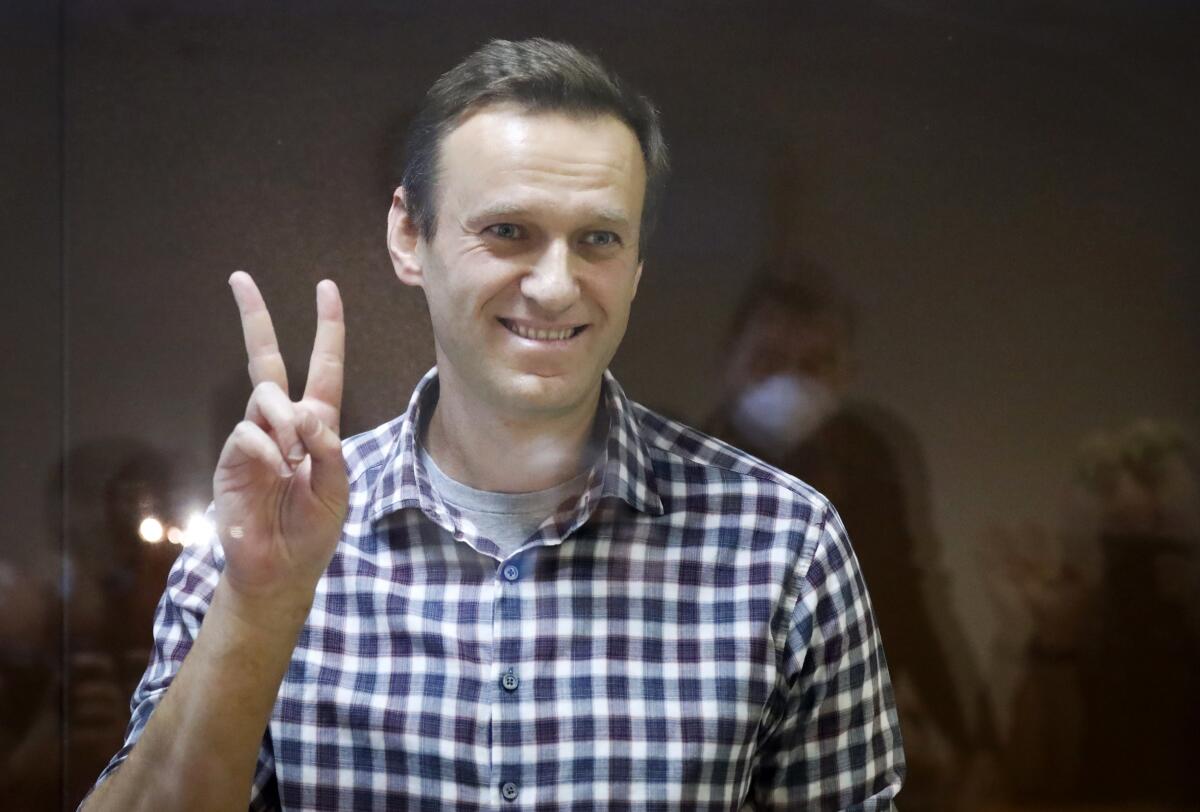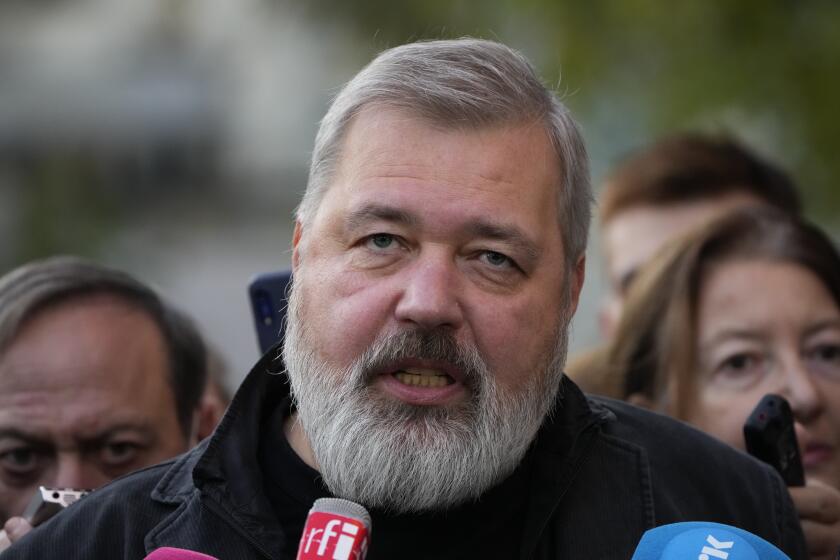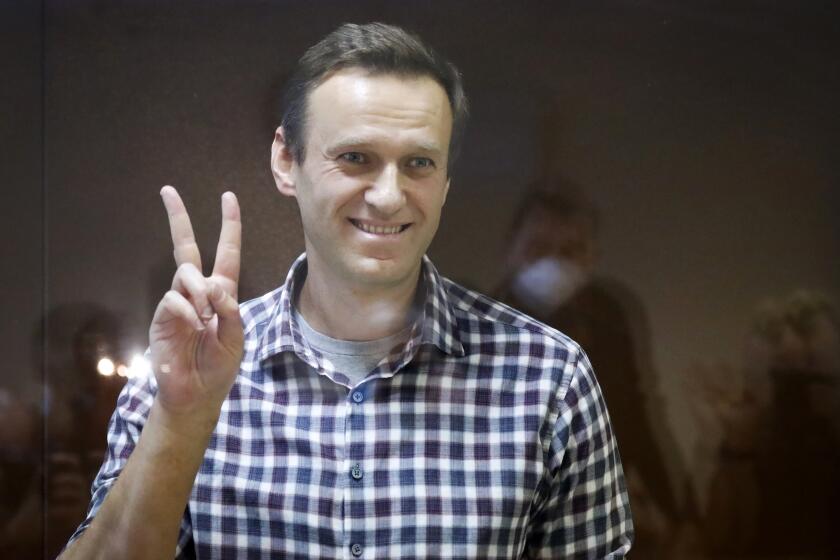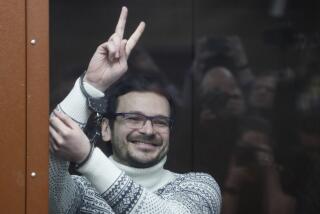Russia adds Alexei Navalny and his top allies to its terrorist list

- Share via
MOSCOW — Russia has added imprisoned opposition leader Alexei Navalny and some of his top allies to its registry of terrorists and extremists, the latest move in the government’s multi-pronged crackdown on opposition supporters, independent media and human rights activists.
Navalny, Russian President Vladimir Putin’s fiercest critic, and eight of his allies — including top aides Lyubov Sobol and Georgy Alburov — were added to the registry Tuesday by Russia’s Federal Financial Monitoring Service. The law requires that the bank accounts of those on the list be frozen.
The move comes a year after Navalny’s arrest, which triggered some of the biggest mass protests in Russia in years. Navalny was detained upon his return from Germany, where he spent five months recovering from a nerve-agent poisoning he blamed on the Kremlin. Russian authorities have denied any involvement.
Navalny was ordered to serve 2½ years in prison for violating the terms of a suspended sentence stemming from a 2014 fraud conviction that human rights activists described as politically motivated. In the months after his arrest, Navalny’s brother Oleg and many of his top allies also faced criminal charges, and the authorities labeled his Foundation for Fighting Corruption and a sprawling network of regional offices as extremist, outlawing them and paralyzing their operations.
Russian authorities have also increased their pressure on independent media and human rights groups in recent months. Dozens have been designated as foreign agents, which brings additional government scrutiny and strong pejorative, discrediting connotations.
Some were declared “undesirable” — and therefore illegal — or were accused of links to “undesirable” groups, and several were forced to shut down or disband to prevent further prosecution.
As a new Nobel Peace Prize laureate, Russian newspaper editor Dmitry Muratov has downplayed the buzz around his name.
Russian authorities Tuesday petitioned the court to have Oleg Navalny serve his one-year suspended sentence in prison. Last year Oleg, together with Alexei Navalny’s top allies, was convicted of violating coronavirus regulations over the protests in support of his brother and was handed a one-year suspended sentence.
Previously, Oleg was convicted of fraud alongside his brother in 2014, but while Alexei Navalny received a suspended sentence, Oleg was ordered to serve 3½ years in prison. He was released in June 2018.
The crackdown on Alexei Navalny and other dissenting voices in Russia has elicited outrage in the West.
On Tuesday, European Union foreign affairs spokesman Peter Stano reiterated that “this is not acceptable, that we see this as a continued repression against the critical voices in Russian society.”
Imprisoned Russian opposition leader Alexei Navalny has urged global leaders to target corruption and the tycoons close to President Vladimir Putin.
Sobol, who left the country after standing two trials on criminal charges last year, told the Associated Press on Tuesday that she believed the decision to add Navalny, her and other allies to the registry of terrorists and extremists was made in the Kremlin.
“There’s absolutely no doubt that the decision regarding myself, Navalny and my closest associates and colleagues was made in the Kremlin with personal contribution by Vladimir Putin. I think he has all matters involving our team under a special control, and it’s not a decision made by lower-ranked officials,” Sobol said.
She said the move was likely aimed at scaring ordinary Russians and vowed that Navalny’s team, some key members of whom have left Russia, would continue their work.
More to Read
Sign up for Essential California
The most important California stories and recommendations in your inbox every morning.
You may occasionally receive promotional content from the Los Angeles Times.












